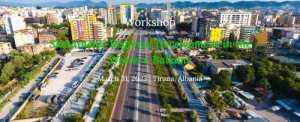Archives
Elisabete Martins
Program | 1st International Conference on Sustainable Regional Development in Cities and Territories in the Developing World, 28-29 April 2023, Hammamet-Tunisia
The Regional Science Association International (RSAI) and the Faculty of Economics and Management of Sfax (University of Sfax) are organising the first international conference on sustainable regional development in cities and territories in the developing world. The conference aims to bring together leading scientists, researchers and academics to exchange and share their expertise and knowledge on all aspects of sustainable development at the scale of cities and territories. It also serves as an interdisciplinary platform to discuss existing trends and challenges and responses adapted to the context of developing countries.
The program is now available at: http://conferencetunisia.weebly.com/program.html
NARSC Update | Seohee Kim Wins 23rd Benjamin H. Stevens Fellowship
Seohee Kim, a Ph.D. candidate in Economics at Duke University has been selected as the winner of the 23 rd Annual Benjamin H. Stevens Graduate Fellowship in Regional Science. The Fellowship will provide a 2023–2024 Academic Year stipend of $30,000 to support Ms. Kim’s dissertation research on “National Homebuilders’ Internal Capital Networks and Local Housing Outcomes.”
Ms. Kim’s research investigates how local housing shocks propagate across US regions through homebuilders' internal capital markets and spillovers to competing builders. Despite their importance in the provision of affordable housing, there has been a scarcity of research on modeling the supply side of new housing markets, particularly the behavior of large national homebuilders. This is due to the difficulty of assembling data on the production network and
outcomes, and also the lack of fundamental understanding of the nature of competition among builders. Her research quantifies the aggregate and distributional impact of rising homebuilding industry concentration and presents the results of a counterfactual scenario in which financial frictions for corporate homebuilders are eliminated. Ms. Kim’s doctorial research is supervised
by Daniel Yi Xu, Professor of Economics at Duke University.
In addition to selecting the Fellowship recipient, the Selection Committee identified three applicants as meriting special recognition as finalists in the 23rd Annual Competition: Laura Weiwu, Massachusetts Institute of Technology, advised by David Donaldson; Kate Harwood, New York University, advised by Ingrid Ellen; and JoopYup Park, Duke University, advised by Patrick Bayer.
The 23rd competition winner and finalists will be recognized at the awards luncheon of the 70th North American Meetings of the RSAI in San Diego, CA. The Committee thanks the 15 students who entered the competition, as well as their dissertation supervisors.
The Benjamin H. Stevens Graduate Fellowship in Regional Science was established in 1998 in memory of Dr. Benjamin H. Stevens (1929–1997), an intellectual leader whose selfless devotion to graduate students as teacher, advisor, mentor, and friend continues to have a profound impact on the field of Regional Science. Graduate students enrolled in Ph.D. programs in North America are eligible to compete for the Benjamin H. Stevens Graduate Fellowship in support of their dissertation research in Regional Science.
Faculty at all North American Ph.D. programs are asked to encourage their best students to apply for the 24 th Stevens Graduate Fellowship, which will support the winning student’s dissertation research in the field of Regional Science with a fellowship stipend of $30,000 for the 2024–2025 academic year. The application deadline is February 15, 2024. Full submission guidelines may be found at www.narsc.org/newsite/awards-prizes/applications/
The 2023 Stevens Fellowship competition was overseen by a Selection Committee composed of: Steven Deller, University of Wisconsin, Madison (Chair); Nicholas Nagle, University of Tennessee; Shaoming Cheng, Florida International University; Heather Stephens, West Virginia University; and Zhenhau Chen, The Ohio State University. The Stevens Fellowship Committee administrates the Stevens Fellowship Fund on behalf of the North American Regional Science Council; its members are: Tony Smith, University of
Pennsylvania, Chair; David Plane, University of Arizona, Secretary; Michael Lahr, Rutgers University, Treasurer; Janet Kohlhase, University of Houston; and John Sporing, Executive Director of NARSC.
Fundraising to support the Stevens Fellowship Fund, begun in 1998, is ongoing. Donations may be made either via credit card by accessing the User Area of the NARSC website or by sending a check to: The Stevens Fellowship Fund / First Financial Bank, Attn: Danville Trust Department / One Towne Center / Danville, IL 61832 USA.
The New Issue of Regional Statistics is already Available! (2023, VOL 13, No 2)
THE NEW ISSUE OF REGIONAL STATISTICS IS ALREADY AVAILABLE!
We are pleased to inform you that a new issue of the Regional Statistics has been released and now it’s available online.
https://www.ksh.hu/terstat_eng_current_issue
REGIONAL STATISTICS, 2023, VOL 13, No 2.
STUDIES
Manuel Ruiz-Marín – Mariluz Maté-Sánchez-Val – Jose Noguera-Venero: Did Covid-19 modify the spatial concentration of business failure?
https://www.ksh.hu/statszemle_archive/regstat/2023/2023_02/rs130201.pdf
Andrea Bucci – Luigi Ippoliti – Pasquale Valentini : Analysing spatiotemporal patterns of Covid-19 confirmed deaths at the NUTS-2 regional level
https://www.ksh.hu/statszemle_archive/regstat/2023/2023_02/rs130202.pdf
Ngo Thai Hung.: What effects will Covid-19 have on the G7 stock markets? New evidence from a cross-quantilogram approach
https://www.ksh.hu/statszemle_archive/regstat/2023/2023_02/rs130203.pdf
Cuong Viet Nguyen: Effects of weather on the health of individuals: Comparative evidence from Cambodia, Laos, and Vietnam
https://www.ksh.hu/statszemle_archive/regstat/2023/2023_02/rs130204.pdf
Tímea Győri: Categorisation of regions in the European Union based on smart and inclusive growth indicators for the Europe 2020 strategy
https://www.ksh.hu/statszemle_archive/regstat/2023/2023_02/rs130205.pdf
Arif Rahman Hakim – Nachrowi D. Nachrowi – Dwini Handayani – I Dewa Gede Karma Wisana : The measuring of urban amenities index and its effect
on migration: Evidence from Indonesian cities
https://www.ksh.hu/statszemle_archive/regstat/2023/2023_02/rs130206.pdf
Muhammad Nadeem – Muhammad Irfan Malik – Shahid Adil – Novaira Junaid: Exploring the determinants of ecological efficiency in selected emerging economies using pooled mean group estimator
https://www.ksh.hu/statszemle_archive/regstat/2023/2023_02/rs130207.pdf
Nuray Tezcan: Towards sustainable development goal 3: The case of the Balkan countries
https://www.ksh.hu/statszemle_archive/regstat/2023/2023_02/rs130208.pdf
Join us to our social networking sites:
Call for applications | The Peter Nijkamp Research Encouragement Award
Call for applications
The Peter Nijkamp Research Encouragement Award
The award recognizes the outstanding potential of a mid-career researcher from a nation in the developing world in which there is a section of RSAI. Conditions for applications are:
- No more than 10 years from the doctoral qualification (by Dec 31, 2022);
- Live in developing nations continuously for at least three years as at Dec 31, 2022;
- Be a member of RSAI in good standing;
- Submit a written formal research paper on a topic in Regional Science;
- Submit an updated version of CV.
All material must be submitted to the This email address is being protected from spambots. You need JavaScript enabled to view it.
Nominees will be judged in part on the evaluation of the paper and in part on an evaluation of the research track record and performance (CV).
The winner(s) will receive support, up to 750 Euro, to participate in a Supra-Regional meeting or in the World Congress, at which the paper will be presented.
The jury will comprise the Immediate Past-President of RSAI as Chair, an Editor of Papers in Regional Science, and two RSAI Fellows.
Deadline for the applications: May 31, 2023.
New Issue 55 of Investigaciones Regionales - Journal of Regional Research
Investigaciones Regionales - Journal of Regional Research has published the 55th Issue, the first volume corresponding to 2023. This volume is a Special Issue devoted to the study of the processes of institutionalisation of protected natural areas in Spain, together with an international perspective of the topic. This volume has been coordinated by José Antonio Cortés, Beatriz Santamarina and Teresa Vicente.
Below you will find the summaries of the papers published in this volume, which can be accessed at https://investigacionesregionales.org/en/revista/issue-55/
We invite authors to submit papers at https://investigacionesregionales.org/en/envio-de-articulos/submission-of-papers-and-others-contributions/
In 2022 the journal has been positioned in the First Quartile (Q1) of Scopus, and this year, 2023, we will have receive a Journal Impact Factor in the Web of Science Core Collection of Clarivate.
Special Issue 2023: The institutionalization of Protected Natural Areas
Editorial
Teresa Vicente Rabanaque, José A. Cortés-Vázquez, Beatriz Santamarina Campos
Genealogies of Nature Conservation. Processes of institutionalisation of Protected Areas
The current network of protected areas in Spain has been a product of the transfer of political responsibilities from the State to the autonomous regional governments that began in the 1980s. Among other outcomes, this institutional re-arrangement triggered an unprecedented development of public policies and legislation in the field of nature conservation. In these pages we will trace the contours of a genealogy of what we would call the “institutionalization” of nature conservation, through the diachronic, comparative analysis of three case studies and their specificities: Catalonia, Andalusia and the Valencian Community. We will then expand our analysis to Portugal and, eventually, to the current international context wherein neoliberal conservation policies are expanding nowadays.
Keywords: Protected areas; nature protection; conservation policies; Anthropology of Conservation
Articles
Judit Gil-Farrero
Protected areas in Catalonia (1970-1988): social demands, conservation and land-use planning
Public conservation policies in Catalonia began in the 1970s as a response to a demand from civil society, with a growing concern about the negative impacts of Franco’s developmentalism, and were configured as an instrument of land-use planning. Based on qualitative interviews with informants of different profiles who played a special role in this period, this article studies the institutionalisation of nature conservation in Catalonia between 1970 and 1988, analyses the role of the administrations involved, and shows the relevance of the changing political-social context of the period in this process.
Keywords: Protected areas; conservation; environmental policy; land-use planning; Catalonia
Ernesto Martínez-Fernández, Agustín Coca-Pérez, Francisco Javier Escalera-Reyes, David Florido-del-Corral , Santiago M. Cruzada, Felipe Campos-Mardones, José A. Cortés-Vázquez
The natural is political. The construction of the environment as an object of government in the Andalusian context (1978-1989)
Between 1978 and 1989, a nationally and internationally acclaimed nature conservation model was created in Andalusia. It would be the result of a complex political process, marked by contradictory tendencies (the transition from Francoism to parliamentarism, from centralism to autonomy), social-environmental activism, and disputes among professional disciplines (biology, engineering, geography, among others). Using qualitative interviews, hemerographic and documentary sources, we explain this model, its vision and instruments, as a political-administrative apparatus that result from personal relationships and the confrontation between political currents within the ruling party in Andalusia (PSOE) in the context of rising environmentalist demands and movement.
Keywords: Environmental policy; conservationism; Andalusia; protected areas
Miquel À. Ruiz Torres, Beatriz Santamarina Campos, Ana Campo Muñoz
The beginnings of conservation of protected areas in the Valencian Community. The institutionalization of protection as a political tool
The official designation of protected areas in the Valencian Community (Spain) was initiated in the mid-1980s by the first government of the region through the creation of various classes of protection. The process was executed in an expeditious manner following the devolution of environmental management by the Spanish state in 1984. It was carried out in the absence of an adequate legal framework on the regional level; in the context of social mobilization in defence of the moves, as well as varying degrees of local opposition; and parallel to an extensive and expanding urbanization of the coastline. Into this context of legitimization of democratic political powers and shifting approaches to eco-system conservation was then added the concept of urgent protection, but without the sufficient resources and management tools to accomplish it. This paper presents the keys to understanding the initial processes of institutionalization of protected areas in the Valencian Community (Spain) through interviews with the holders of the principle political and managerial positions at the time.
Keywords: Protected areas; patrimonialization of nature; conservation policies; institutionalization of nature; Valencian Community
Ángela Calero Valverde, Teresa Vicente Rabanaque, Judit Gil-Farrero, Félix Talego Vázquez
Citizen mobilization for nature conservation: Democracy, autonomy and protected areas
This article explores the role of social movements in shaping conservation policy in the 1970s, 1980s and 1990s in the territories of Catalonia, Andalusia and the Valencian Community. Through qualitative research based on in-depth interviews and documentary analysis, we address from a comparative perspective how citizen mobilization and scientific and academic associations influenced the declaration of the first natural parks through the support or rejection of conservation initiatives.
Keywords: Conservation anthropology; social movements; natural parks; ecology; conservationism
Amélia Frazão-Moreira, Humberto Martins
National and Natural Parks in Portugal. A brief history to understand the appropriation by the state of humanized territories
The text examines legal frameworks in Portugal to discuss how nature conservation has been managed from a state perspective. Natural Protected Areas correspond to a desire of the political sphere to match an international environmental agenda. However, they have been implemented mainly in private properties or in baldios (communal, though not public lands). Therefore, in practical terms, a tension has been always present between the state and the communities and/or private owners since the beginning of the 20th Century with the creation of ‘forest perimeters’. The article flies over the critical turning points in Portuguese conservation policies from the seventies of the 20th Century to present-day with the recently created diploma of co-management for Protected Areas.
Keywords: Portugal; state; protected areas; conservation; legal diplomas
Elia Apostolopoulou
Navigating neoliberal natures in an era of infrastructure expansion and uneven urban development
Since the 2008 global economic crisis, the neoliberalization of nature and space, and consequently of environmental and planning policies, have exacerbated significantly. From infrastructure megaprojects, mining, fracking, waste disposal and land grabbing to shrinking access and loss of public green spaces, uneven gentrification and urban regeneration policies, public spaces, and natures within and beyond cities have been appropriated, privatized, commoditized, profoundly transformed and degraded with the aim to overcome recession and boost urban development. Despite the varying degree of success in pursuing urban growth, this has disproportionally affected people along lines of class, ethnicity, and gender, deepening environmental, social, and spatial inequality in many places across the globe. By drawing on my long-term research on biodiversity offsetting, the key argument I aim to advance in this essay is that since the 2008 financial crash, we have been witnessing the emergence of an increasingly symbiotic relationship between neoliberal conservation policies, infrastructure expansion and uneven urban development. This has been accompanied by the reframing of non-human nature as a movable amenity and has been intertwined with the new territorialities that the profound changes in global urban and economic geographies have brought about. This shift aims to legitimize and render common sense the idea that nature, either a protected area, a forest, an endangered species, or an urban green space, can be simply (re)located and (re)created where the interests of particular sections of capital dictate. Crucially, the underlying argument is not only that non-human nature should not be considered a barrier to infrastructure expansion and urban growth but perfectly compatible with it.
Keywords: Neoliberal conservation; green/un-green grabbing; neoliberal urbanism; urbanization; biodiversity offsetting; infrastructure
2024 RSAI World Congress | Request for Proposals
2024 RSAI World Congress | Request for Proposals
The Regional Science Association International (RSAI) aims to hold a world congress at least once every two years. Unfortunately, the last congress – in Marrakech in 2020 – had to be postponed to 2021, and held online, due to the outbreak of the COVID-19 pandemic. RSAI considers world congresses an important instrument for furthering its mission of global advancement of regional analysis and related spatial and areal studies for the benefit of society.
The RSAI calls for proposals to host a world congress in 2024. Potential hosts are RSAI Supra-Regionals, Sections or Members that have a proven track record of hosting conferences and related events. A world congress may be held concurrently with another event or as a standalone event. Proposals must be submitted from May 1, 2023, and within Thursday, June 1, 2023, 23:59 CET. Proposals are evaluated by the RSAI Council. A decision will be made at the RSAI Council meeting to be held in Cambodia, during the PRSCO summer institute; depending on the quality of the proposals received, the RSAI reserves the right not to organize a congress in 2024, or to propose the organization for a subsequent year. This document outlines the application process, organization and expected outcomes regarding the 2024 world congress.
Prior RSAI World congresses
Criteria for a successful 2024 world congress
- The world congress should aim to have significant participation from members of Sections of all four supra-regional organisations – ERSA, LARSA, NARSC and PRSCO.
- The conference should also endeavor to attract regional scientists resident in countries in which no RSAI Section has yet been established. Subsidies may be available to selected applicants for participation through RSAI’s “Building Bridges” programme.
- The 2024 World Congress may be held as a standalone event. Alternatively, proposals may suggest to organise it jointly or “back-to-back” with another event. Such a joint or back-to-back event could be an RSAI Section meeting, a supra-regional congress, or an event held jointly with other organizations with similar objectives or networks.
- The proposed dates of the congress must be such that they do not clash with other events that aim to attract the same regional science community, unless a joint conference is envisaged. The organizers will consult with the RSAI President and the RSAI executive Director in order to identify a mutually acceptable schedule for the event.
- The conference should be held at an easily accessible location in a globally accessible city.
- Accommodation should be available at the conference venue (when the conference is held at a hotel or convention centre). Alternatively, a range of affordable accommodation should be available within 15 minutes walking from the venue.
- The congress should include plenary sessions of interest to the global scientific community. The overall conference theme and the selection of keynote speakers should reflect this. Of course, local perspectives and concerns may be interwoven with global perspectives and concerns.
- Proposals should include initiatives to encourage participation from developing countries and from other countries in which no RSAI Sections have yet been established. RSAI can assist financially in meeting this objective through its “Building Bridges” programme but other funding initiatives (e.g. subsidies for participating postgraduate students) are also encouraged.
- The programme could also include one or more workshops for professional development of emerging scholars and postgraduate students, who may not be in a position to contribute a full paper to the formal scientific programme.
- The working language of the congress is English but proposals may include arrangements for simultaneous translation of plenary sessions where this is deemed to be desirable.
- Proposals should include a risk assessment regarding contingencies that could impact on the viability and success of the congress. Ways in which potential risks can be managed should be outlined.
- A detailed financial plan providing details on the economic aspects of the congress should also be submitted along with the candidature.
Organization of the congress
- For the services it provides, RSAI Office charges a commission equal to 20% of all registration fees received. The remaining registration revenue is transferred to the legal entity representing the LOC. Any anticipated sponsorship monies will be included in the budget.
- All arrangements for the organization of the World Congress will be formalized in a Memorandum of Understanding (MOU). The MOU will be signed by the President of RSAI, the Executive Director, the Chair of the LOC and the person representing the legal entity through which the LOC operates.
Application Process
- Proposals should address each of the 12 criteria for hosting the 2024 world congress outlined above. However, it is understood that some of the information provided by the congress proposers (such as names of suggested keynote speakers, sponsorship, etc.) will be tentative at the time the proposal is submitted.
- Proposals should include a list of the key people involved in organizing the congress, a draft congress plan (including dates, location and schedule), a detailed draft budget (including a schedule of registration fees) and a suggested range of accommodations and charges.
- The acceptance of a proposal by RSAI Council does not constitute a binding agreement between the two parties. The subsequently drawn up MOU, which is guided by the proposal, will constitute a binding agreement.
- Proposals should be submitted by email to the Executive Director (This email address is being protected from spambots. You need JavaScript enabled to view it.; cc: This email address is being protected from spambots. You need JavaScript enabled to view it.) by Thursday, June 1, 2023, 23:59 CET.
- A decision regarding the 2024 World Congress will be made by RSAI Council during the meeting to be held at the forthcoming PRSCO summer institute in Cambodia.
In Memoriam: Roberto Camagni
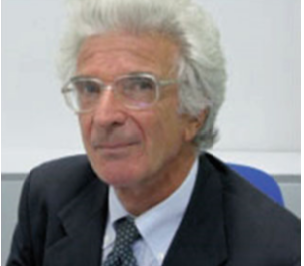 Dear colleagues,
Dear colleagues,
it is with great sadness that I let you know that Roberto Camagni suddenly passed away on April 3rd, at the age of 76 in Milan.
Roberto was Professor Emeritus of Regional and Urban Economics at Politecnico di Milano. He graduated in Economics at Bocconi University, in 1973 in Milan, and spent a full academic year at University of Pennsylvania where he got fascinated by regional and urban studies.
Roberto has always been very active in our Community. He was one of the founders of the Italian Section of the Regional Science Association International (AISRe), which he chaired between 1989 and 1992. Between 2003 and 2005, Roberto acted as President of the European Regional Science Association. Moreover, for twenty years (1987-2016) Roberto was President of the GREMI-Groupe de Recherche Européen sur le Milieux Innovateurs, Paris 1 - Panthéon Sorbonne. In 2010, he received the ERSA Prize, and in 2017 he became Fellow of the Regional Science Association International.
From the scientific point of view, Roberto enriched our discipline a lot. The influence of the French school of Philippe Aydalot, of the GREMI group, and the cooperation with Italian colleagues, Riccardo Cappellin for the regional competitiveness analyses, and Lidia Diappi and Giorgio Leonardi, two eminent system analysts, for urban studies, were crucial in his early period. With them Roberto developed concepts like the role of territory in local knowledge creation, the “efficient, rather than optimal, urban size” contained in the SOUDY model, and the formation of urban rent between the city and the countryside.
The 1990s and 2000s were Roberto’s most active period, in which he produced an unbelievable and admirable number of seminal works in all fields of Regional and Urban Economics. In 1992, he published his Urban Economics textbook (later translated into French and Spanish, but unfortunately, to my great regret, never into English!), the first (and to date only) textbook in that discipline published by an Italian. In regional economics, it was in this rich and active phase of his life that Roberto published a constructive criticism of Paul Krugman’s provocative statement that regions and cities compete on the basis of relative comparative advantage à la Ricardo, with the rather dangerous consequence that regional policies have no reason to exist. It was also in those years that Roberto provided evidence of the importance of national (macroeconomic) effects on regional development. He demonstrated a clever scientific balance between macro-economists, who neglected all sorts of regional effects of national policies, and regional economists, at that time concentrated on reinforcement of the “endogenous regional growth model” launched in the 1970s by the industrial districts theory, and who therefore obsessively denied any kind of role of national economic phenomena in regional growth. It was in that period that Roberto became interested in urban planning. Under the influence of his wife, Maria Cristina Gibelli, Roberto’s interest centred on what was then a new approach to urban planning, known as “strategic planning”, and soon became an advisor to several Italian municipalities interested in launching a strategic plan for their city. It was in that period that Roberto entered the field of “urban sustainability”. He provided a measurable definition of this concept, and launched a large research program, leading a multidisciplinary group of economists and planners. The result was a rich interpretation of urban sustainability from both the economic and territorial perspectives.
From the mid-2000s onwards, Roberto reached full maturity, guiding his research group in many innovative research projects won through tough competition at international level. Together with his school, Roberto implemented a macro-econometric regional growth forecasting model Macroeconomic, Sectoral, Social and Territorial (MASST). It was in this phase that Roberto took up the challenge issued by the European Union to define “territorial cohesion”. He did so by developing a clear and measurable definition of this fuzzy concept, and he launched a simple and effective method to assess the impact of programs and projects on territorial cohesion which was applied in many studies and cited by several authors. It was also in those years that Roberto developed the concept of “territorial capital”. This notion synthesised all potential assets for regional growth, by underlining the economic nature of each of them, and especially each single law of accumulation and depreciation, on which to base appropriate regional policies.
Roberto was also very active as an expert for different national and international bodies, namely EU, OECD, Plan Urbain (France), the Italian Ministers of Public Works and Industry and many Italian and European Regional Governments in the fields of innovation diffusion and regional and urban development planning. In the period 1994 and 1998 Roberto was coordinator of the Groupe de Prospective sur les Villes, Datar, Paris. In 1995 he was nominated expert of the Italian Prime Minister for the ESDP - European Spatial Development Perspective, and was in charge of the Report on Urban Development and Policies, presented at the EU Ministerial Meeting in Venice, May 1996, within the Semester of Italian Chairmanship of the EU.
In 1997, Roberto was nominated Head of the Department of Urban Affairs of the Presidency of Council of Ministers, during the first Prodi Government. In the same year, Roberto was a member of the Committee for the Reform of the Urban Planning Law, Ministry of Public Works in Rome. In 1998, he was in charge of the preparation of the Framework for action for urban sustainable development for DG REGIO of the European Commission. He was expert for the EU ESPON project for the Ministry of Infrastructures, between 2001 and 2004.
He retired in 2017, but he was still very active. During the lockdown period, Roberto wrote a fantastic and admirable piece of work on Adam Smith. Through a work that—he confessed me—lasted two years of full immersion in Adam Smith's writings and immense scholarship, Roberto was able to provide us with an unbelievable opus that uncovers the legacy of such a Great Mind for Regional Science. With such a wonderful publication, published in “Great Minds in Regional Science, Vol. 2”, edited by Peter Batey and David Plane (eds.), and published by Springer, Roberto leaves us.
We will remember him for ever.
Roberta Capello
Politecnico di Milano
Post-doc position at the University of Bologna - Smart and Sustainable Urban Mobility: Integration of Public Transport and Shared Mobility
Dear Colleagues,
Within the GRINS project (Next Generatino EU / PNRR: https://dse.unibo.it/it/terza-missione/next-generation-eu), at the Department of Economics of the Alma Mater Studiorum Università’ di Bologna we opened a post-doc position (assegno di ricerca) within the themes of Spoke 7 (Territorial sustainability), and in particular of the work package on “Infrastructures and smart mobility: policies and strategies for resilient and sustainable territories and cities”.
Research activities will focus on the implementation of extensive discrete choice experiments on sustainable mobility and in particular on the integration of public transport and micromobility, and on the role of mobility hubs as facilitators of such integration.
Experience in the field of transport (and potentially tourism), and with discrete choice modelling and related software, is appreciated.
A PhD is not required for this position, but will be evaluated, if present, as a preferential title. Please note that the second-cycle degree (master’s degree) is the legal requirement for applying, and a winning candidate holding a non-EU degree will need to provide an official translation and a declaration of value from the competent Italian embassy/consulate within 60 days after the closing of the selection.
Although the contract is initially for one year, it is extendible within the project up to three years. The reported amount is tax free, and only includes law-mandated social security contributions.
The holder of the post-doc grant will work on the campus of RIMINI of Unibo, within a team which includes Profs Roberto Patuelli and Lorenzo Masiero, and in possible synergy with the SmartHubs project (https://www.smartmobilityhubs.eu/) and related collaborators.
The start of activities of the grant holder is expected approximately for 15 May.
Applications for the selection must be presented exclusively via web, through Unibo’s website, by 17 APRIL.
Please see the official call (also in English version) and the link to the application page at the following address: https://bandi.unibo.it/ricerca/assegni-ricerca?id_bando=66319.
For any information, please do not hesitate to contact Prof. Roberto Patuelli (This email address is being protected from spambots. You need JavaScript enabled to view it.).
Please spread this call around to whoever you think might be interested.
Roberto Patuelli
ERSA Monthly E-news - March 2023
|
|
|
|
|
|
|
|
|
|
|
|
|
|
|
|
|
|
|
|
|
|
|
|
|
|
|
|
|
|
|
|
|
|
|
|
Program | Workshop on Sustainable Regional Development in the Western Balkans | March 31, 2023 | Tirana, Albania
The scientific journal Regional Science Policy and Practice belongs to Regional Science Association International and it is committed to promote the development of Regional Science across the globe specifically through the promotion of special issues on nurtured by workshops.
The main purpose of this first workshop is to mobilize and nurture talents across the Western Balkans, publish a special issue of the journal on Sustainable Regional Development and European Integration in Western Balkans and support RSAI in the creation of regional science sections in Western Balkans.
The workshop seeks to enhance participants understanding of recent developments and methodologies that could be useful for spatial and regional analysis facilitating the European integration and implementation of sustainable development goals in the Western Balkan region. Spatial assessment is more important to our understanding of economic and geographical problems, the workshop will develop the skillsets and knowledge of regional scientist to be able to analyse and understand complex spatial problems and to apply these tools in developing innovative research, in policy making and further expanding research capacities in the Western Balkan region.
Through this workshop, participants will be able to learn and apply spatial econometric models, geographic data, agglomeration and movement of labour and capital to make informed policy decisions that can facilitate the European integration process.
See program at https://westernbalkansworkshop.weebly.com/programme.html
About Us
The Regional Science Association International (RSAI), founded in 1954, is an international community of scholars interested in the regional impacts of national or global processes of economic and social change.

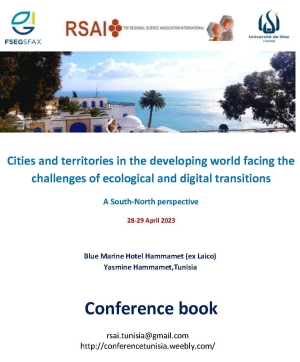
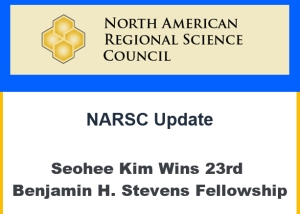
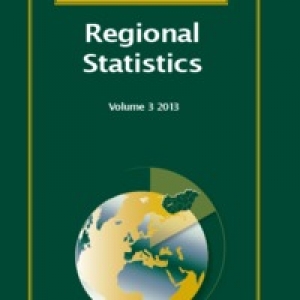
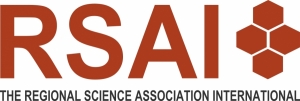
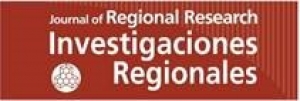
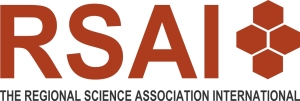
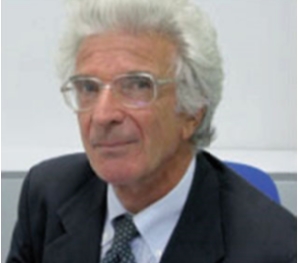
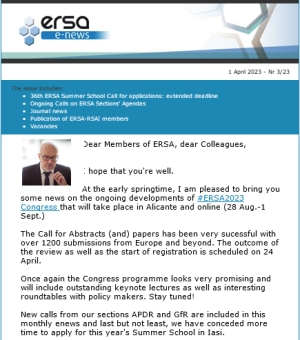

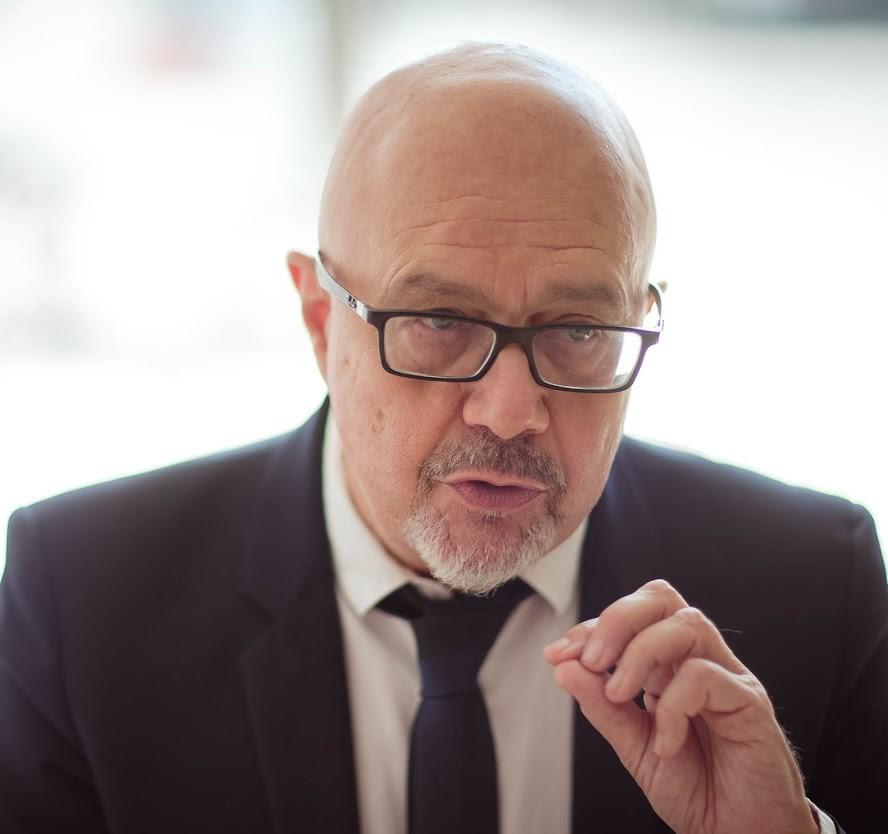 Dear Members of ERSA, dear Colleagues,
Dear Members of ERSA, dear Colleagues,

 36th ERSA Summer School
36th ERSA Summer School



 VI Seminar for New Academic Researchers
VI Seminar for New Academic Researchers








